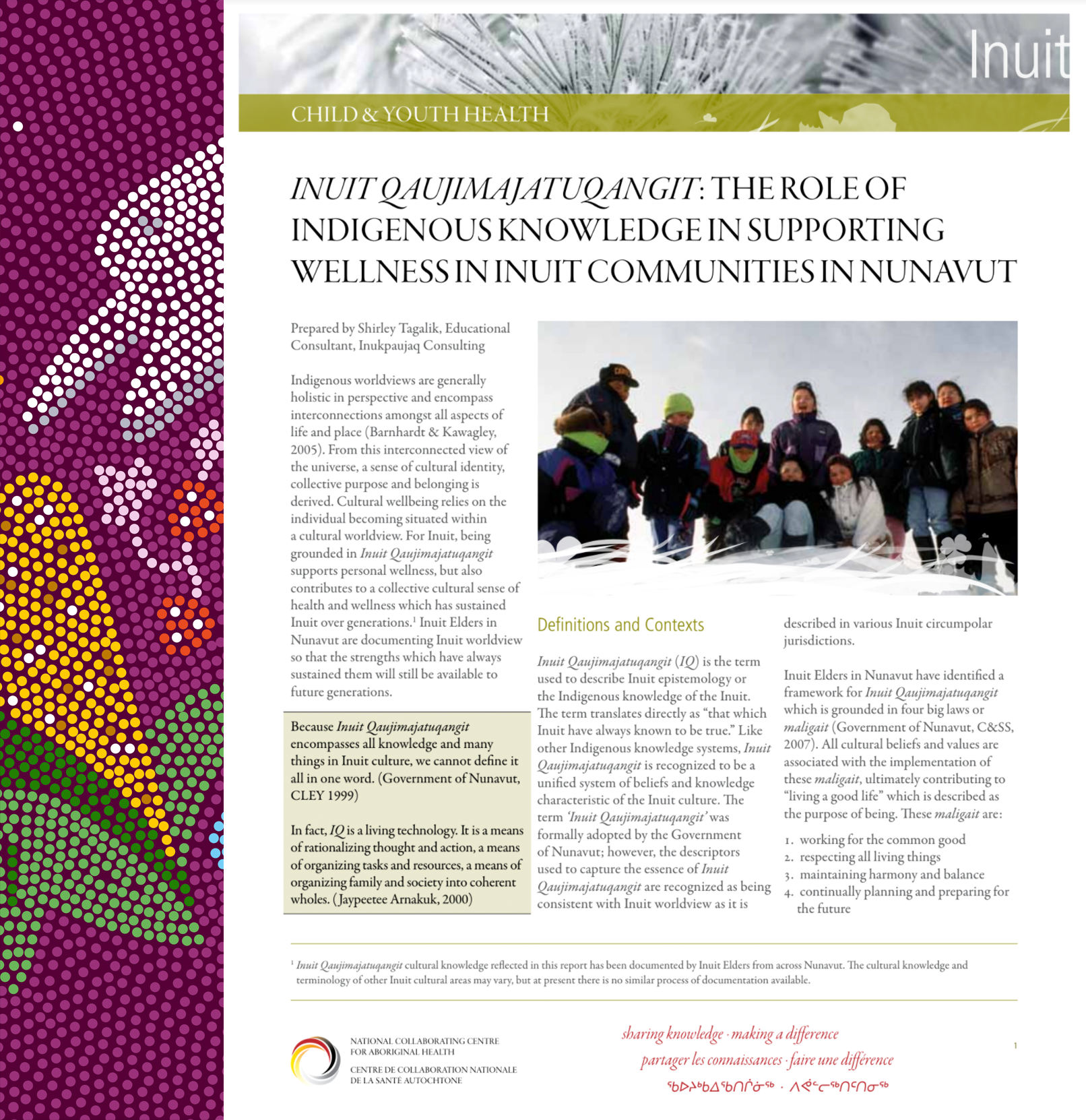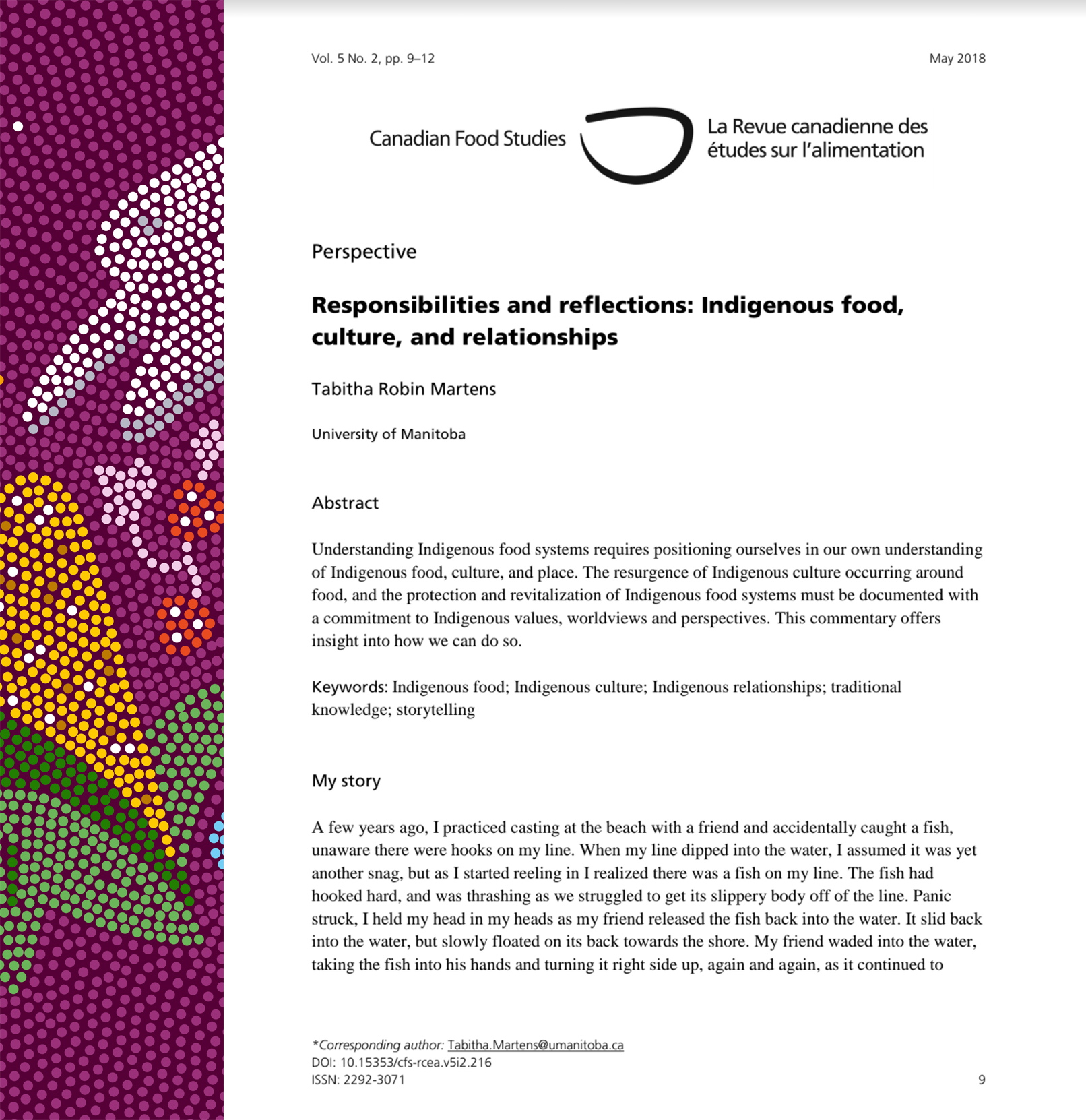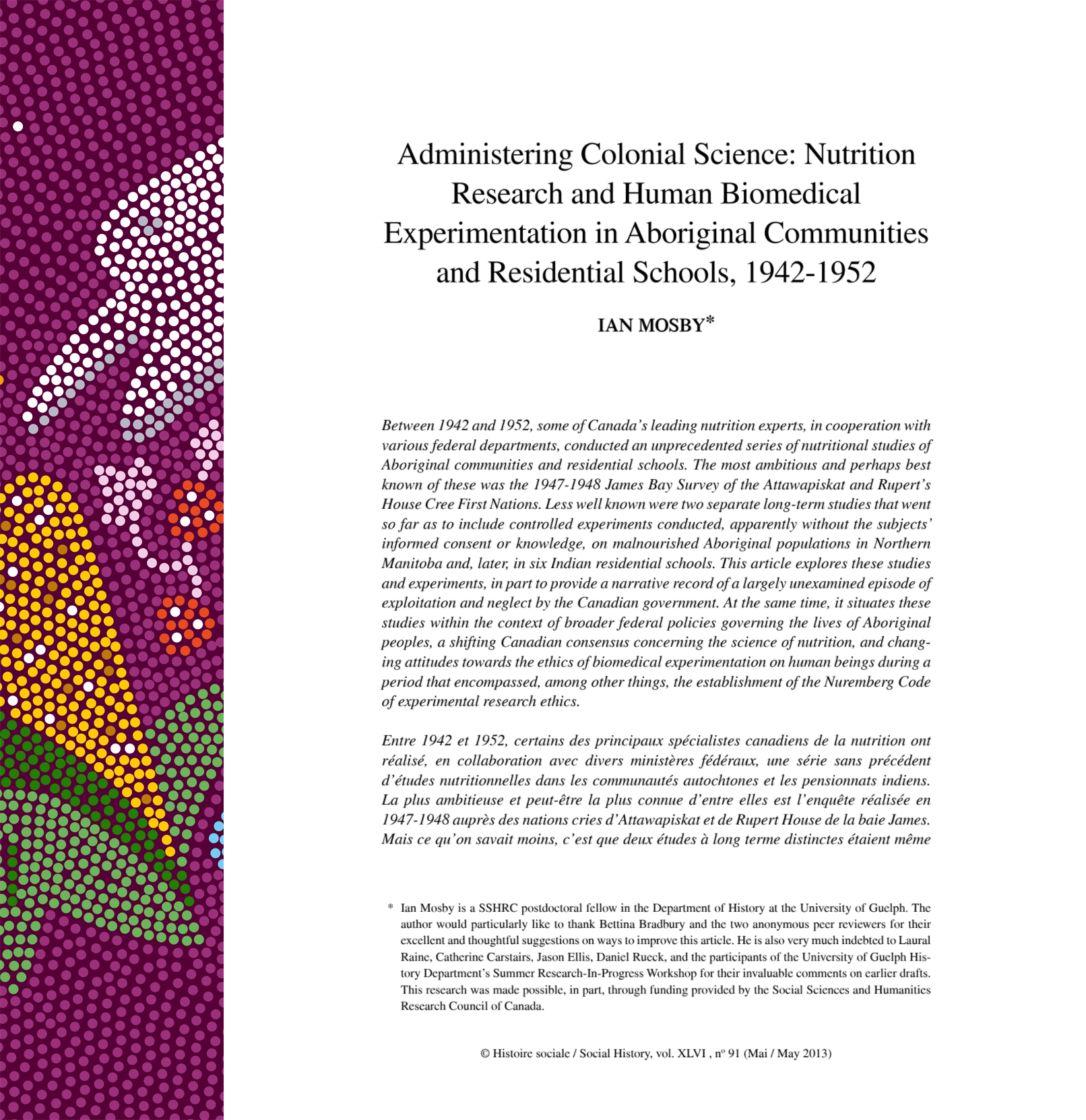Source: Shirley Tagalik; National Collaborating Center for Indigenous Health
Year: 2010
Indigenous worldviews are generally holistic in perspective and encompass interconnections amongst all aspects of life and place (Barnhardt & Kawagley, 2005). From this interconnected view of the universe, a sense of cultural identity, collective purpose and belonging is derived. Cultural wellbeing relies on the individual becoming situated within a cultural worldview. For Inuit, being grounded in Inuit Qaujimajatuqangit supports personal wellness, but also contributes to a collective cultural sense of health and wellness which has sustained Inuit over generations. Inuit Elders in Nunavut are documenting Inuit worldview so that the strengths which have always sustained them will still be available to future generations.
















